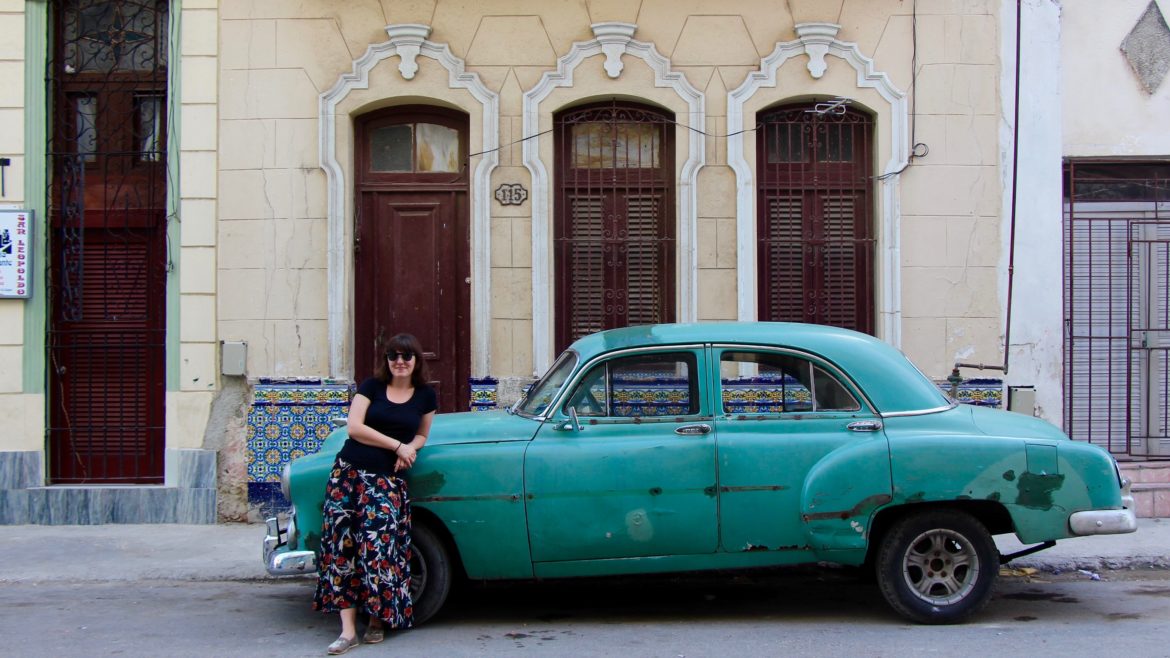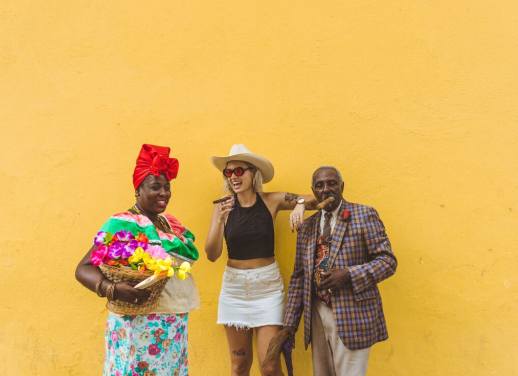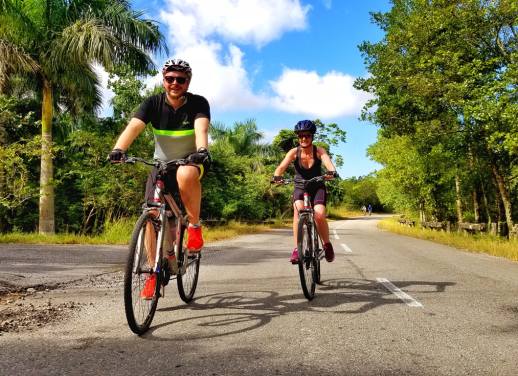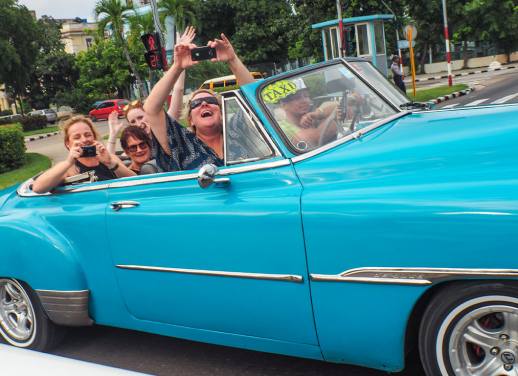When I describe Cuba after returning from my nine-day visit, the first word that comes out of my mouth is charming. Charming? Yes, charming.
Why, you might ask… Well, that’s a long story.
As an American traveling on Intrepid’s Hola Cuba adventure, my local tour guide Antonio told us at the beginning of our trip that the unofficial Cuban motto is “Well, what happened was…”. Typically used as a commonplace excuse, it can be applied to any number of situations that are out of one’s control. Running late because there was a farm animal in the road? Use it. No running water in your bathroom because a pipe burst? Use it. Notice an unfinished construction project that started in the 1990s? Use it.
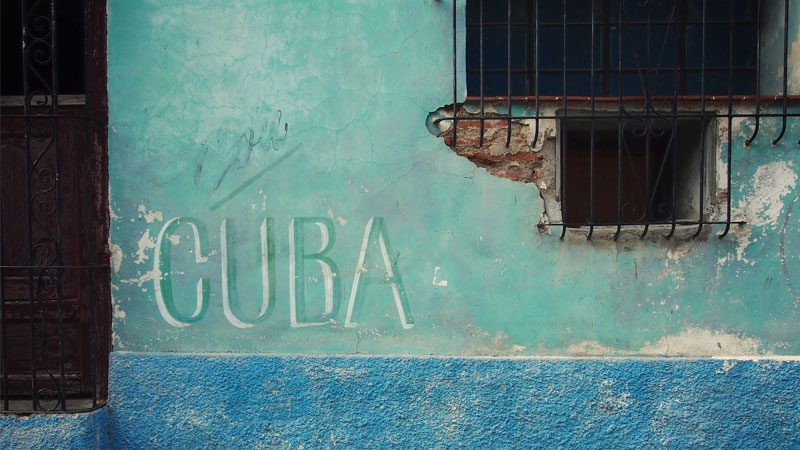 Antonio told us that this casual saying could sum up pretty much any situation in Cuba, and as foreigners, we should take it as part of the Cuban charm. He taught us that in order to see the subtle beauty of this island nation, we had to wholeheartedly embrace this motto.
Antonio told us that this casual saying could sum up pretty much any situation in Cuba, and as foreigners, we should take it as part of the Cuban charm. He taught us that in order to see the subtle beauty of this island nation, we had to wholeheartedly embrace this motto.
Take, for example, the day we went to visit the Che Memorial. We arrived at the museum around 10am, roughly an hour after it opened. Just a few steps away from entering the memorial, all of a sudden the power goes out and we are told the museum is closed for the day. After further discussion with museum’s guide, we find out that this interruption is a planned power outage related to a construction project in town. Just like that, the museum is closed indefinitely because of a lack of electricity.
 To embody Antonio’s advice, how else can you react to a situation like this but with a chuckle and a head shake, saying that quintessential Cuban phrase “Well, what happened was…”. There is nothing any of us could have done about the power outage issue except readjust to the surprises that travel inevitably throws at you. You take a deep breath and keep your head high as you develop a new plan for the day.
To embody Antonio’s advice, how else can you react to a situation like this but with a chuckle and a head shake, saying that quintessential Cuban phrase “Well, what happened was…”. There is nothing any of us could have done about the power outage issue except readjust to the surprises that travel inevitably throws at you. You take a deep breath and keep your head high as you develop a new plan for the day.
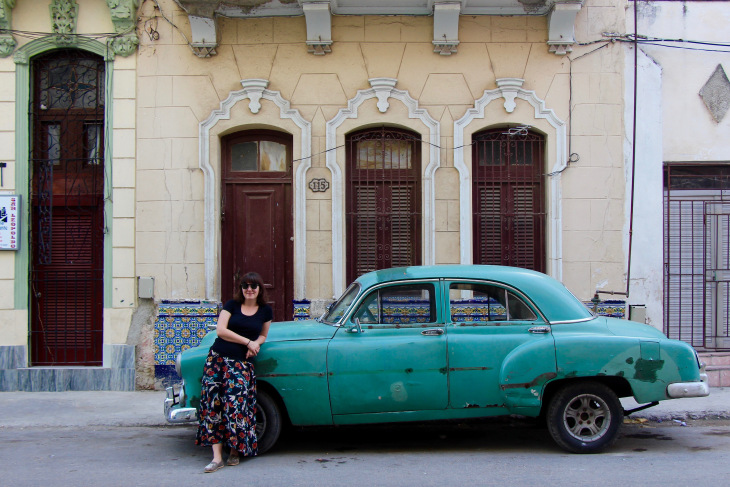
Megan in Cuba
This lackadaisical indifference may feel foreign to many people. The cultural sociologist Hofstede describes “uncertainty avoidance” as a key dimension of culture that differentiates people around the world. A lot of us Westerners are taught to value schedules. This is just one reason why we grasp for punctuality and well-organised calendars. We aren’t necessarily comfortable with unexpected or uncertain things.
RELATED: TIPS FOR SOLO FEMALE TRAVELERS IN CUBA
Now contrast that with a culture like Cuba which has lower uncertainty avoidance. When Cubans encounter unforeseen occurrences, they react with a shrug or eye roll, seemingly unbothered by a disruption in their day. In cultures like this, value is often placed on relationships over itineraries, relaxed attitudes over timeliness. Punctuality is not something Cubans feel a need to adhere to because any number of unexpected events could potentially happen. So, what is the sense in getting worked up about it?
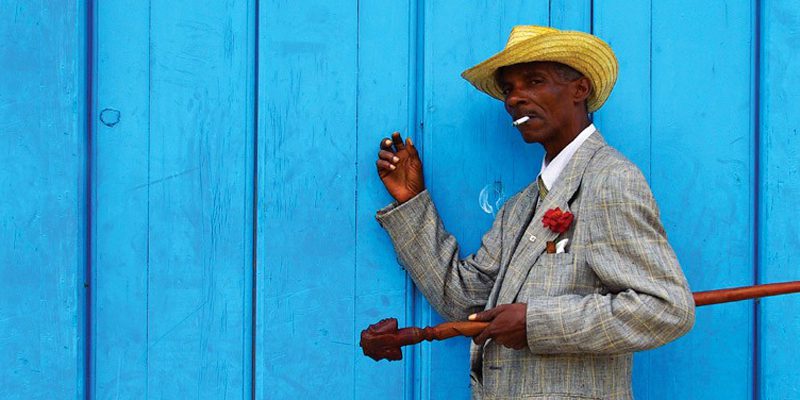
Play it cool in Cuba, like this guy
On our drive from Cienfuegos to Santa Clara, we ran into a perfect demonstration of the culture differences between high uncertainty versus low uncertainty cultures. Without any sign or warning, our bus comes to a dead stop in the middle of a major highway. Why? Well, the highway was literally ripped up with construction — think rocks, gravel and a big hole. All of my fellow American travelers reacted by asking “What happened?” or “How long are we going to be stopped?”, anxiously looking out the window to see what the problem was.
RELATED: CHECK OUT OUR RANGE OF SMALL GROUP TOURS IN CUBA
Meanwhile, our Cuban driver seems totally unbothered by the delay. He pulls out a newspaper and kicks up his feet to wait out the traffic jam. This is a classic reaction from a low uncertainty avoidance country! Growing more accustomed to his expression, we started to anticipate that our guide Antonio was going to say “Well, what happened was…”. In the end, the delay lasted about half an hour, and it was not a loss — we watched a Cuban history documentary during the wait to learn more about the context of the sights we were seeing.
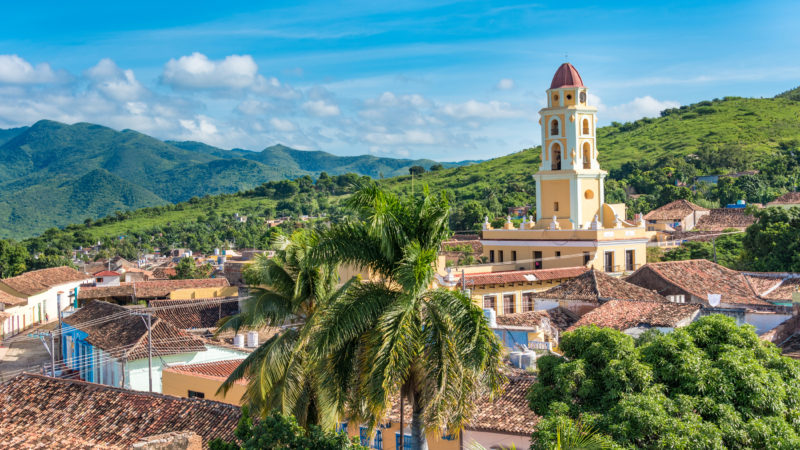
Iglesia y Convento de San Francisco in Trinidad, Cuba
As experienced travelers, sometimes we need a destination like Cuba to humble us, to remind us that a little challenge is what made us fall in love with travel in the first place. One of the best parts of traveling is adapting, learning to deal with what is thrown at you. You may have no idea what is going on, but you’ll figure it out. We always do.
Traveling in Cuba allowed me to relearn important values like patience and flexibility, simply because they are necessary qualities to survive. I always value this reminder; it makes me a little more cheerful at home, a little less prone to road rage or commuter frustrations. Because living in Chicago, it’s easy to forget the comfortable things I take for granted. It’s always the simple things — drinking tap water, throwing toilet paper in the toilet, sleeping without the sounds of stray animals — that seem the most luxurious to me upon coming home after a trip abroad.
READ MORE: WHAT INTREPID’S LEGAL CUBA TOUR IS LIKE, ACCORDING TO 13 AMERICAN TRAVELERS
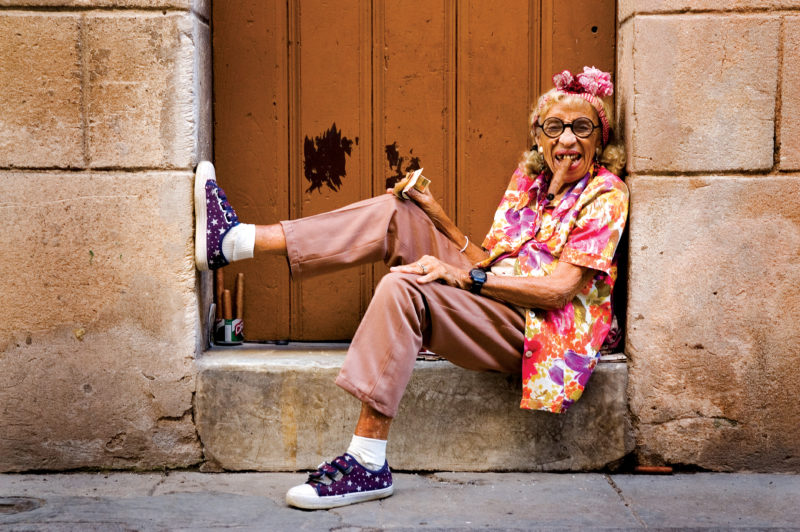 I use the word charming when describing Cuba in an all-encompassing sense. It’s watching a well-dressed older gentleman playing live music in Havana. It’s the quaintness you spot immediately when strolling the old streets of Trinidad. But the number one way I think of Cuba as charming is in the sense that the unexpected and random moments endear you to the place. These subtle and quiet moments of “Well, what happened was…” become your most memorable takeaways.
I use the word charming when describing Cuba in an all-encompassing sense. It’s watching a well-dressed older gentleman playing live music in Havana. It’s the quaintness you spot immediately when strolling the old streets of Trinidad. But the number one way I think of Cuba as charming is in the sense that the unexpected and random moments endear you to the place. These subtle and quiet moments of “Well, what happened was…” become your most memorable takeaways.
RELATED: 5 REASONS YOU SHOULD BE VISITING CUBA RIGHT NOW
When I thought of Cuba prior to my visit, charming certainly was not the first word that came to mind. Elusive? Yes. Communist? Yes. I thought of both of those words right away. But upon returning home, the most common word I use to describe Cuba is charming. I didn’t quite understand how to use “Well, what happened was…” at first, but by the end of the trip, I had fully embraced this nonchalant attitude.
For me, this is a sign that I had fully absorbed my experience for what it was — a cultural lesson in the Cuban way of life. After all, that’s what this whole travel thing is about, isn’t it?
Whatever your story is and your travel needs are, we have a Cuba trip for you. Check out our small group tours.
—
Image Credits: All c/o Intrepid Travel (except picture of Megan c/o her blog, traverse-blog.com.

